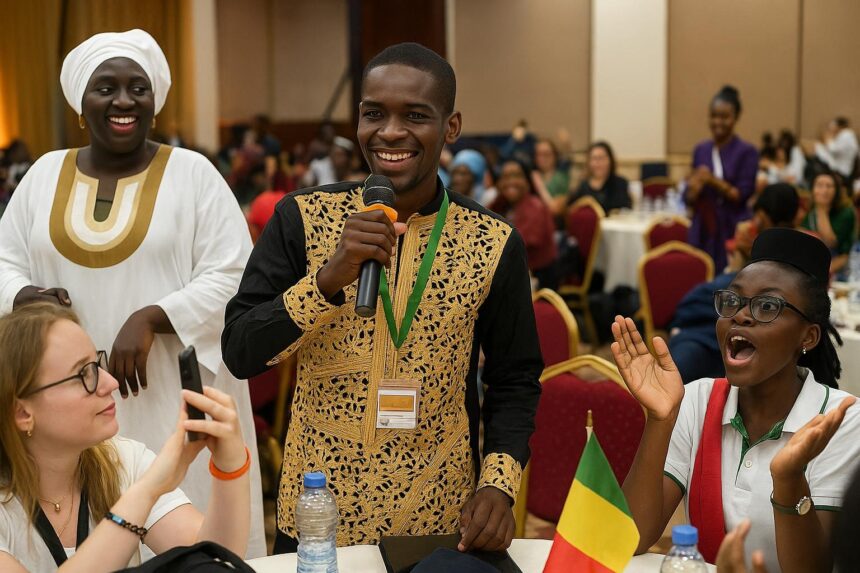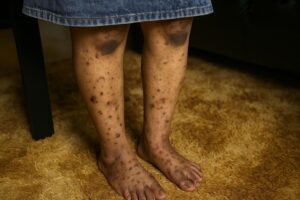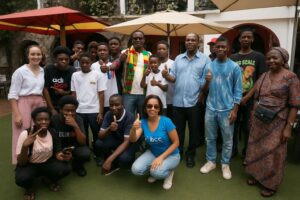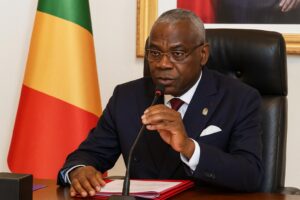Dakar summit ends, momentum rises
The Girls of West and Central Africa Summit wrapped up in Dakar on 11 October 2025, coinciding with the International Day of the Girl. Over two intense days, more than 200 adolescents swapped ideas, data and personal stories under the banner of UNICEF Senegal (UNICEF communiqué).
While the conference tents are now folded, its message still resounds: giving every girl a fair chance at secondary school is not a luxury but a regional priority. Organisers stressed quick follow-up through local media, social networks and mobile-friendly toolkits.
Congolese delegation makes noise
Lucia, Frédéric, Charles, Rebecca, Shekinha and Euverte travelled from Brazzaville and Pointe-Noire to speak for Congo-Brazzaville’s girls. Using vivid slides and short video clips, they highlighted classroom shortages in rural Niari as well as promising mentorship projects in the capital.
“We want to be surgeons, coders and writers, not early brides,” Lucia told the plenary, earning a standing ovation. Her teammate Charles added that existing school-canteen programmes at home prove that practical solutions can scale fast with sustained support.
The delegation also praised recent national investments in teacher hiring and gender-sensitive facilities, noting that additional community outreach could accelerate attendance, especially after floods disrupted several river-bank schools last season.
Ten million girls still left out
UNICEF’s Regional Director Gilles Fagninou reminded attendees that 10 million girls in West and Central Africa remain absent from secondary classrooms. He cited early marriage, teenage pregnancy, distance to schools, lack of civil registration and household poverty as the main drivers (UNICEF data).
Fagninou’s speech balanced urgency with optimism. He pointed to steady progress in countries that removed school fees or expanded digital enrolment systems, suggesting the gap can close within a decade if momentum holds.
“Every girl denied schooling means one less engineer, one less nurse, one less innovator our continent needs,” he declared, inviting governments, private firms and faith leaders to rally behind the summit’s roadmap.
Backpacks under the monument
The summit featured a striking art installation at Dakar’s African Renaissance Monument. Volunteers laid out 600 backpacks—300 blue, 300 black—symbolising girls who should be in class but are not.
Tourists paused for photos, instantly amplifying the image on social media. Rebecca from Congo noted that each empty bag reminded her of a childhood friend who dropped out when transport costs spiked. “Visibility moves hearts; data moves budgets,” she said.
Girls draft their own roadmap
Instead of a top-down communiqué, organisers let the adolescents craft a regional agenda. Working groups focused on safe transport, menstrual health, digital literacy and legal identity, then merged proposals into a concise charter titled ‘Doors Open, Futures Bright’.
Key demands include free birth registration within 30 days, expanded boarding facilities for rural girls and continent-wide zero-tolerance policies against child marriage. The charter will circulate in French, English and four major local languages.
Lucia explained that writing the document themselves “proved we are not beneficiaries but partners”. UNICEF officials pledged to integrate the charter into forthcoming country strategies, including Congo-Brazzaville’s next education sector plan.
From pledge to classroom: the next steps
Back in Brazzaville, the six delegates plan a multimedia roadshow across radio stations, TikTok and school assemblies to keep pressure alive. Their first stop is Talangaï next month, where they will screen a three-minute summit recap video shot on their phones.
Local NGOs such as Agir pour Filles have offered logistics, while municipal authorities signalled support by making community halls available. The Ministry of Primary and Secondary Education welcomed the initiative, describing it as “a natural extension of ongoing efforts to reach universal lower-secondary enrolment by 2030”.
Observers say citizen-led monitoring can complement official statistics. “Data collected by the girls themselves will spotlight micro-obstacles we miss in national surveys,” education analyst Justine Mabika commented in a phone interview.
What families and communities can do now
Parents interviewed at Brazzaville’s Marché Total applauded the summit but asked for practical advice. Psychologist Nestor Moundélé recommends setting aside study corners at home, even in tight spaces, and sharing chores more evenly among sons and daughters to free learning time.
Neighbourhood chiefs in Pointe-Noire’s Mont-Kamba district plan regular town-hall talks on the costs of early marriage, pairing testimonies from health workers with success stories of local female graduates.
Rebecca believes these micro-actions, amplified by social media stories and short WhatsApp videos, will sustain the summit’s spirit until the next regional gathering scheduled for 2027.






















